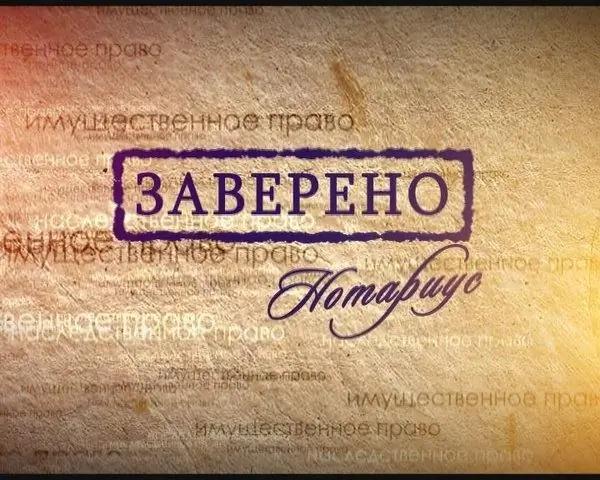Registration of a deal, contract or other contractual relationship between entities requires the signing of a large number of documents. However, in some cases, in order for them to have legal force, they will also need to be notarized.

In general, the main function of a notary in the Russian Federation is to certify the authenticity of documents and their copies, which may be required in a variety of cases. At the same time, the procedure for carrying out notarial actions, as well as requirements and restrictions regarding their performance, are established in our country by a special regulatory legal act: Law No. 4462-I of February 11, 1993 entitled "Fundamentals of RF Legislation on Notaries".
Documents subject to notarization
You can apply for a notarial certificate to a specialist with various documents issued by both government agencies and individuals or legal entities. In accordance with the law on notaries and other regulatory legal acts of our country, there are several categories of documents that are subject to mandatory certification by a notary. These include documents such as a marriage contract, a contract of annuity or life support, a statement of acceptance of an inheritance, a will, a parent's permission to leave a minor child abroad, and some others.
Other documents can also be notarized if circumstances so require. For example, the terms of the agreement on the transaction between the parties contain a requirement for notarization of all accompanying documents. However, in this case, it is necessary to make sure that such documents comply with the requirements of the law: the text in them is written clearly and clearly, all the numbers contained in it are spelled out in words at least once, which eliminates discrepancies, and all data of the individuals or legal entities participating in the transaction are written in full, without reductions. If the required document is executed on several sheets, these sheets must be bound, numbered and sealed. In addition, you should make sure that the documents submitted for certification do not contain signs that may prevent a notary from certifying their authenticity.
Restrictions on notarization
Cases when a notary can refuse to certify documents are recorded in Article 45 of the Law on Notaries. The specified section of this regulatory legal act, in particular, establishes that a specialist does not have the right to certify documents that contain blots, corrections and strikethroughs, as well as papers written in pencil. In addition, you will be provided with the certification of the text, which due to dilapidation or due to the influence of other factors has become unreadable or unclear.






